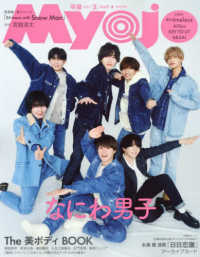Full Description
The third edition of Early Childhood Curriculum provides a comprehensive and accessible introduction to curriculum theories and approaches in early childhood and early primary settings. Drawing on a cultural-historical framework for education, the text explores a variety of approaches to learning and teaching and equips readers with the tools to effectively plan, design and implement curriculum strategies. Thoroughly revised and updated, this edition features up-to-date coverage of national curriculum documents, including the Early Years Learning Framework and Te Whāriki, and expanded content on play-based curriculum, assessment and documentation. Key domain areas of the curriculum are explored in depth and have been revised to include updated discussions of environmental factors, digital knowledge and multiliteracies. Each chapter is enriched with learning intentions, definitions of key terms, reflection points, links to current curriculum documents and illustrative case studies to help readers connect theory to practice.
Contents
1. Introduction; 2. Theory, research and the early childhood curriculum; 3. Play, learning and development: how views of development shape how curriculum is framed; 4. Curriculum as cultural broker; 5. Interpreting early childhood curriculum; 6. Cultural-historical curriculum in action; 7. Curriculum as a conceptual tool: observation, content and programming; 8. Assessing children and evaluating curriculum: shifting lenses; 9. Content knowledge: science, technology, engineering and mathematics (STEM); 10. Content knowledge: language and literacies; 11. Content knowledge: the arts and health, wellbeing and physical activity; 12. Conclusions.







